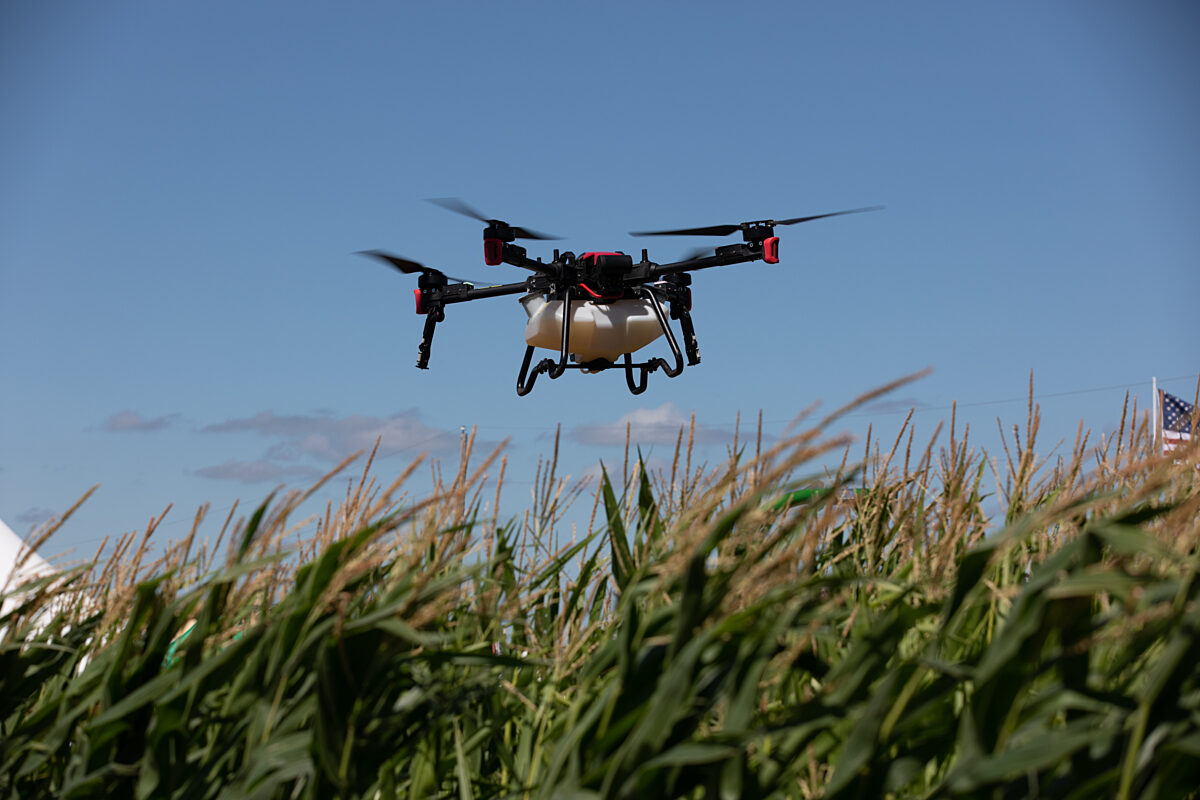Technological Advancements Help Injured Farmers
TOPICS
Farm Safety & HealthGuest Author
Special Contributor to FB.org

photo credit: AFBF Photo, Philip Gerlach
Guest Author
Special Contributor to FB.org
By Robert Giblin
Numerous organizations, including Farm Bureau, encourage farmers to work safely by recognizing and avoiding common agricultural hazards. Continually striving to assess risks and prevent injuries is critical, especially as harvest approaches.
Unfortunately, some farmers do experience injuries while working. The challenges injured farmers must overcome to continue their usual work are much different than those someone in a less physically demanding profession might experience.
Other advancements in technology and robotics are being studied for farm use.
For example, until recently farmers who lost a limb due to injury or a chronic illness, such as diabetes, were outfitted with common prosthetic devices that were not well-suited to farm work. Today, technological advancements are helping create prosthetics that are durable, affordable and adaptable to meet the unique needs of farmers and ranchers.
The need is great due to the robust functionalities required to perform day-to-day functions, field work and operation of equipment unique to each farming operation. In addition, prosthetics used by farmers must be able to withstand environmental factors, including outdoor weather, dust and farm chemicals.
Increasingly, the medical and engineering communities, entrepreneurs and even FFA youth are developing new prosthetic devices tailored to the distinct needs of farmers.
Initially funded in the 1990 farm bill, AgrAbility was established to enhance quality of life for farmers, ranchers and other agricultural workers with disabilities, so that they, their families and their communities can continue to succeed in rural America. One of AgrAbility’s goals is to assist farmers and agricultural workers with long-term disabilities by linking them with resources and providing support needed to live independently and return to work in agriculture.
In 2017, AgrAbility PA recognized a Pennsylvania student from the Cumberland Valley FFA Chapter for developing a myoelectric prosthetic hand. The student, who has an interest in robotics and prosthetics, created initial models from drinking straws, which led to the creation of a functional model made of wood. The project evolved after a model hand was 3-D printed and programed to operate in response to an electrical stimulus.
Inspired by the Boston Marathon bombing in 2013, a group of mechanical engineering students completed their capstone project at Northeastern University in Boston by developing an upper arm prosthetic specifically designed for use with heavy farm equipment. The Northeastern students drew on research from the Northwestern University Prosthetics and Orthotics Center in Chicago, which collaborates with AgrAbility. The research showed available prosthetic options lacked utility and durability. Many farmers also found it challenging to complete training in how to adapt to using prosthetics, due to living in rural areas located far from medical facilities. The students’ invention, the “farm arm,” addresses both challenges. The prosthetic device includes a set of adaptors that can be switched out, depending on the controls of the farm machinery being used. The design accounts for the need to engage throttle and hydraulic levers, joysticks and steering wheels.
Other advancements in technology and robotics are being studied for farm use. In and of themselves, prosthetics present risks because they don’t allow users to feel potential entanglements, pain or other sensations alerting them to potential dangers. To address this problem, Johns Hopkins University scientists are developing an electronic “skin” that fits over an electronic hand, with receptors that capture a range of sensations, including pain. New “intelligent” prosthetic ankles in development can help farmers walk and navigate effectively over different types of terrain. Prosthetic legs are even being developed for pets and farm animals.
Increasing understanding of the unique prosthetic needs of farmers, combined with rapid technological acceleration, will help them regain quality of life and return to work.
Robert Giblin writes, speaks and consults about agricultural and food industry issues, policies and trends.